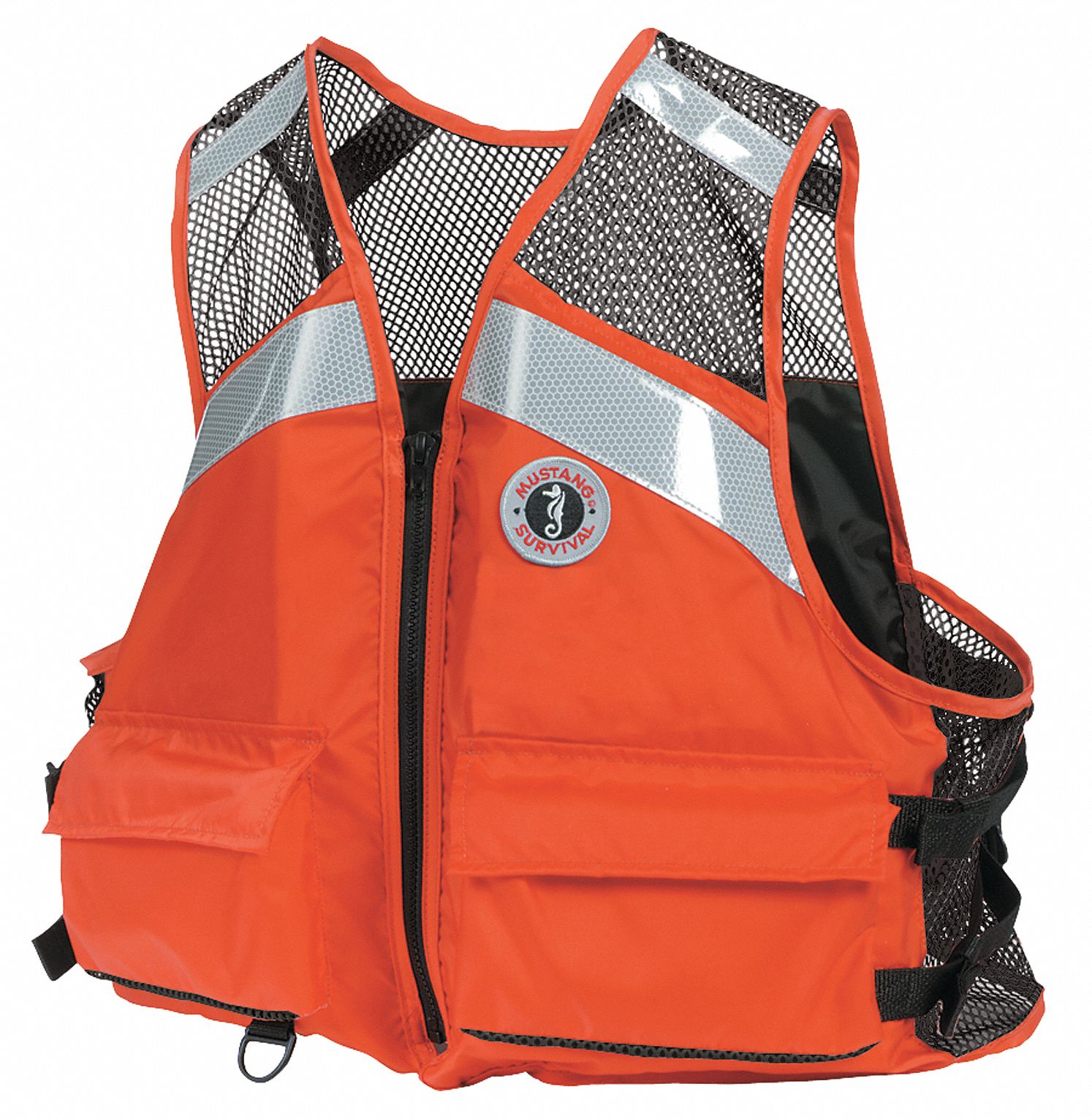Stay Afloat: Your Guide to USCG Approved Life Jackets

Ever wondered what separates a pool noodle from a genuine lifesaver? We're talking about those crucial pieces of safety equipment: USCG approved life jackets. They're not just orange puffiness; they're meticulously designed buoyancy aids, engineered to keep your head above water in a crisis. But navigating the world of Coast Guard approved personal flotation devices (PFDs) can be tricky. This guide will unpack everything you need to know, from their fascinating history to finding the perfect fit.
So, what's the big deal with that little USCG stamp? It signifies that a life jacket meets stringent safety standards set by the United States Coast Guard. These regulations ensure the device will perform reliably in emergency situations, providing the necessary flotation to keep you alive. A Coast Guard approved life vest isn't just a recommendation; it's often a legal requirement for specific boating activities. Think of it as your personal insurance policy against the unexpected.
The history of life preservers is surprisingly rich. From cork blocks to inflatable marvels, these devices have evolved dramatically over centuries. Early versions were bulky and cumbersome, but modern USCG approved life jackets are designed for comfort and performance. The importance of these devices is underscored by countless stories of lives saved, highlighting their crucial role in water safety.
Choosing the correct USCG approved PFD is paramount. There are various types available, categorized by their buoyancy and intended use. Type I offshore life jackets offer the highest level of buoyancy, suitable for rough waters. Type II near-shore vests are less bulky, appropriate for calmer conditions. Type III flotation aids are designed for activities like kayaking and paddling, allowing greater freedom of movement. Type IV throwable devices, like cushions or rings, are for emergencies and must be readily accessible. Finally, Type V special use devices cater to specific activities like waterskiing or whitewater rafting.
One common misconception is that all life jackets are "one size fits all." This couldn't be further from the truth. Proper fit is crucial for a life jacket to function effectively. It should be snug but not restrictive, allowing for comfortable movement while ensuring it won't slip over your head in the water. Children require specifically sized USCG approved life jackets, designed to accommodate their smaller frames and keep their airways clear.
Benefits of a USCG approved life jacket are numerous. They provide peace of mind, knowing you have a reliable safety net in case of an emergency. They increase survivability in accidents, offering crucial buoyancy and keeping your head above water. They also promote compliance with boating regulations, avoiding potential fines and ensuring a safe environment for everyone on board.
Ensure you choose a USCG approved life jacket appropriate for your activity and size. Inspect it regularly for wear and tear, replacing it if necessary. Practice putting it on and entering the water to familiarize yourself with its function. Educate children on the importance of wearing their life vests at all times when on or near the water.
Advantages and Disadvantages of Different Life Jacket Types
| Type | Advantages | Disadvantages |
|---|---|---|
| Type I | Best for open water, will turn unconscious person face up | Bulky, uncomfortable for extended wear |
| Type II | Good for near-shore activities, less bulky than Type I | May not turn unconscious person face up |
| Type III | Comfortable for paddling and watersports, allows greater movement | Not for rough waters, may not turn unconscious person face up |
Frequently Asked Questions:
1. What does USCG approved mean? - It means the life jacket meets Coast Guard safety standards.
2. Do I need a USCG approved life jacket? - Often legally required for boating and certain water activities.
3. How do I choose the right size? - It should fit snugly but allow comfortable movement.
4. How often should I inspect my life jacket? - Regularly, looking for wear and tear.
5. Can I use a pool toy as a flotation device? - No, only USCG approved devices are reliable.
6. Where can I buy a USCG approved life jacket? - Sporting goods stores, boating supply shops, and online retailers.
7. What's the difference between a life jacket and a PFD? - They are essentially the same thing, PFD is the more modern term.
8. How do I care for my life jacket? - Rinse with fresh water after use and store in a cool, dry place.
Tips for maintaining your life jacket: Avoid leaving it in direct sunlight for extended periods. Don't use harsh chemicals for cleaning. Store it properly to prevent damage.
In conclusion, USCG approved life jackets are essential safety equipment for anyone venturing onto the water. Understanding the different types, choosing the correct fit, and performing regular maintenance are crucial steps in ensuring your safety and the safety of others. Investing in a Coast Guard approved PFD is an investment in your peace of mind and well-being. Don't wait until an emergency arises; choose the right life jacket today and enjoy your time on the water with confidence, knowing you have a reliable lifeline in case the unexpected happens. Remember, a life jacket can be the difference between a close call and a tragedy. Make safety your priority and choose wisely.
Decoding droplet isolation rooms your germ free zone
Brown wallpaper peel and stick revolution transform your space
Unlock the magic of benjamin moore green smoke













